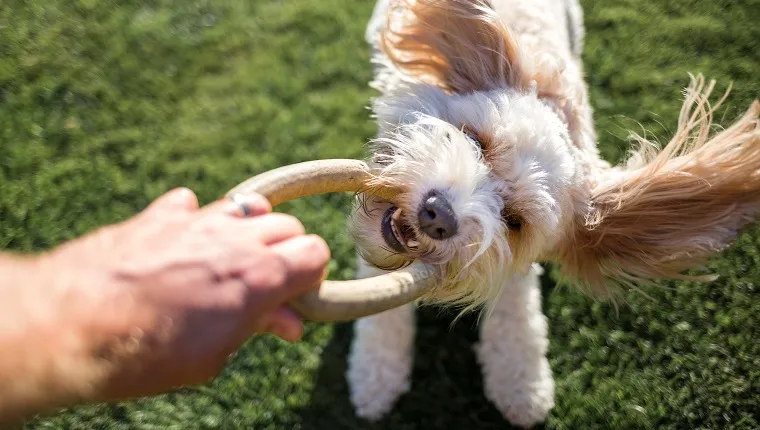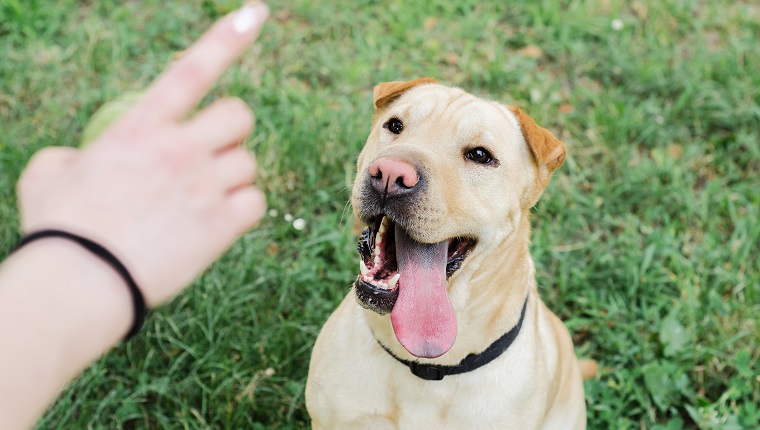
Image by Chris Winsor / Getty Images)
A recently published paper in Animal Cognition argues that parenting style can predict certain dog behaviors.
Parenting styles are nothing new, and psychologists and social workers have talked about the benefits, and shortcomings, of each style for a while now. But what you may not know is that the way you parent your dog has uncanny similarities to their social development.
Lauren Brubaker is a behavioral scientist from Oregon State University and one of the study’s published authors. Brubaker, along with animal behaviorist Monique Udell, wanted to see if parenting styles translate to pet-parent relationships the same way they do with human children.
What Are the Different Parenting Styles?
Psychologists use the term ‘parenting style’ to define the relationships parents form with their kids.
Currently, there are three distinct parenting styles: authoritative, authoritarian, and permissive. Authoritarian is pretty straightforward: do as I say, or else. Likewise, permissive parents are easy to discern. Their kids generally get what they want, when they want it.
Authoritative parenting describes the sweet spot between the two. Authoritative parents listen and validate their child’s expectations, but make sure they clearly understand who’s in charge.
Does Parenting Style Affect Dogs?
For the study, 48 dog parents completed a survey asking them to evaluate their parenting style. Then, each parent and their dog went through three behavioral tests. Meanwhile, researchers assessed the dog’s behavior, specifically their attachment and interaction with their parent.
Besides attachment, the tests also analyzed the dog’s sociability and problem-solving skills. After the tests were completed, the results were compared with the surveys and finalized.
Overall—and not surprisingly—dogs with authoritative parents showed the highest levels of attachment and sociability. More than that, authoritative parents were the only ones able to successfully complete the problem-solving portion of the study.
Based on these results, Monique Udell says, “We found that pet parenting style does predict patterns of dog behavior and cognition.” And according to Brubaker, “This research shows that the pet dog-human caretaker bond may be functionally and emotionally similar to the bond between a human parent and their child.”
Interestingly, the researchers say the study actually raises even more interesting questions. For now, however, they agree on the need for more diverse studies with larger samples. That being said, the published paper states that “pre-existing dog–owner relationship quality served as a significant predictor of dog behavior across all three domains.”









